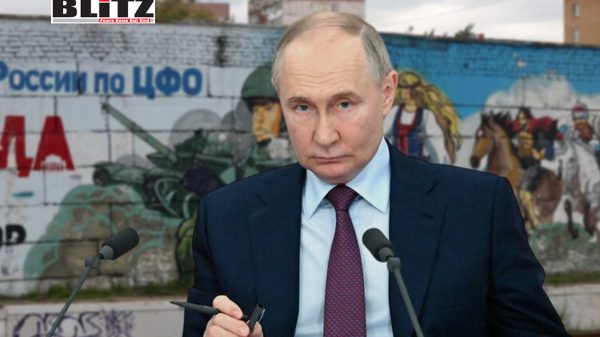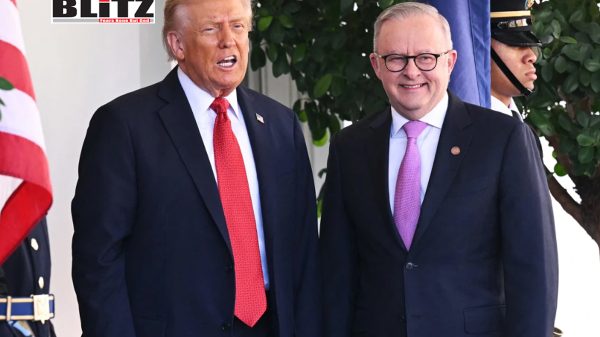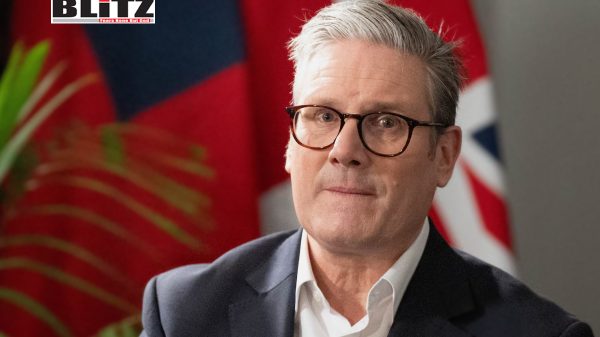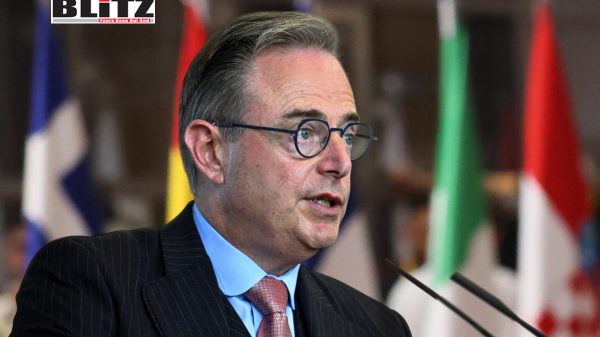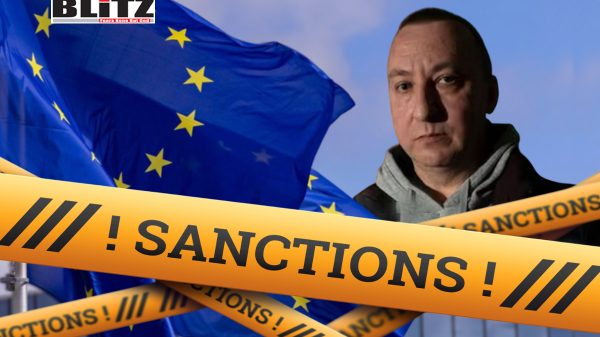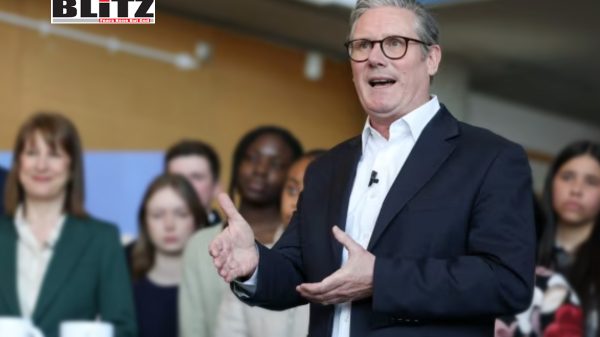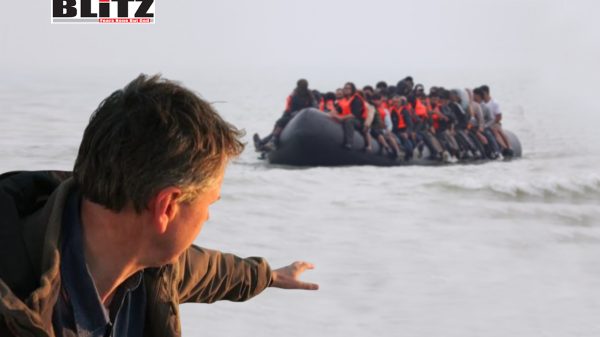Trump claims immigration is ‘killing’ europe amid rising tensions over migration policy
- Update Time : Monday, July 28, 2025
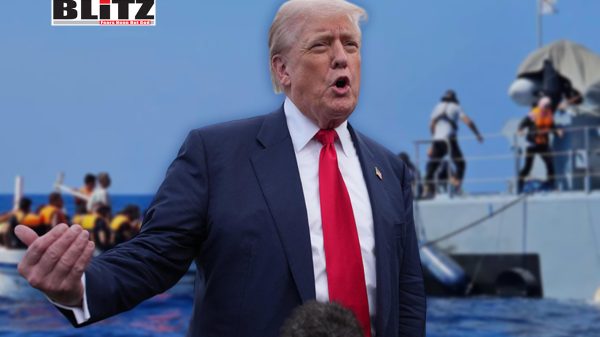
During a visit to Scotland focused on his business holdings, including golf resorts, US President Donald Trump ignited international controversy by claiming that immigration is “killing” Europe. The remarks, made on the heels of increasingly stringent immigration policies in the US under Trump’s second term, reflect his administration’s hardline stance on border control and its broader ideological alignment with nationalist movements across Europe.
Trump’s comments were blunt and incendiary. “You’re allowing it to happen to your countries, and you’ve got to stop this horrible invasion that’s happening to Europe,” he said, in reference to ongoing migrant inflows. He warned that European leaders “better get [their] act together, or [they’re] not going to have Europe anymore.”
These remarks are consistent with Trump’s long-standing opposition to large-scale migration, particularly from the Middle East, Africa, and Latin America. However, his language has become more extreme since retaking the Oval Office in January. He now openly refers to migration into Europe as an “invasion” and has framed the issue in existential terms-warning of the potential “death” of European culture, identity, and security.
Trump also used the moment to praise his administration’s record. “As you know, last month we had nobody entering our country. We removed a lot of bad people who got in,” he said, citing the success of his recent crackdown on undocumented migrants at the US-Mexico border. Since January, the Trump administration has launched what it calls the most ambitious deportation program in US history, bolstering detention capacity and expanding the list of deportable offenses.
The context for Trump’s remarks is the continuing migration crisis in Europe, which began in earnest around 2015 and shows no signs of abating. According to figures from the European Commission, there were over 385,000 irregular border crossings into the EU in 2023-a sharp 18% increase compared to the previous year.
The causes of this renewed wave of migration are diverse. Conflicts in Syria, Libya, and the Sahel continue to displace millions, while economic instability, climate change, and authoritarian regimes push many to seek refuge or opportunity in Europe. The war in Ukraine has added further strain, triggering the largest refugee crisis in Europe since World War II, with millions of Ukrainians granted temporary protection in EU countries.
European responses to this protracted crisis have been uneven and deeply politicized. Initially, countries like Germany and Sweden opened their doors to refugees, earning both praise for humanitarian leadership and criticism for failing to anticipate long-term social tensions.
Over time, public sentiment in many European countries has shifted. Rising concerns about integration, social services, crime, and terrorism have prompted governments to reassess their policies. Countries such as Hungary, Poland, and Italy have championed restrictive measures, including border fences, pushback operations, and offshore asylum processing. Even historically liberal countries like Denmark and the Netherlands have taken steps to curtail new arrivals and deport failed asylum seekers.
In this environment, Trump’s remarks appear to resonate with a growing segment of European leaders and populations who are skeptical of open-door policies and alarmed by what they see as cultural and demographic shifts. Far-right and nationalist parties across the continent have capitalized on these anxieties, gaining electoral ground in countries like France, Germany, and the Netherlands.
US Vice President J.D. Vance echoed Trump’s sentiments during a speech in Washington earlier this year. He described uncontrolled migration as one of the greatest threats facing Europe, warning that it could “destroy the fundamental cultural bedrock of Europe.” Vance, who has played a key role in shaping immigration policy under Trump’s second term, has been a vocal advocate for tighter asylum standards and expanded deportation powers.
Critics, however, argue that such rhetoric fuels xenophobia and undermines international commitments to refugee protection. Human rights organizations warn that dehumanizing language-such as referring to migrants as an “invasion”-can incite violence and erode democratic norms.
Trump’s comments have predictably drawn a mixed reaction. Supporters argue that he is stating an uncomfortable truth about the long-term implications of uncontrolled migration. “What President Trump is saying is what many Europeans feel but are too afraid to say publicly,” said a senior advisor to Italy’s right-wing government.
But opponents blasted the remarks as inflammatory and misleading. “Europe is not dying-it’s changing,” said German MP Katrin Göring-Eckardt of the Greens. “We face challenges, yes, but also opportunities. Migrants have built our societies and continue to contribute to our future.”
European Commission President Ursula von der Leyen issued a carefully worded statement in response, reaffirming the EU’s commitment to managing migration “in a humane, secure, and orderly manner” while acknowledging the need for reform. “We must uphold our values and responsibilities while ensuring the safety and integrity of our borders,” she said.
Trump’s comments reflect more than just policy divergence; they signal a broader ideological battle over identity, sovereignty, and the future of the West. As immigration remains one of the most polarizing issues in global politics, leaders must navigate a minefield of public opinion, international law, and moral responsibility.
The question that looms large is whether Trump’s warnings will be heeded-or whether they will further deepen the divides that have plagued both the United States and Europe for the past decade.
As the 2025 US presidential administration continues to double down on immigration enforcement, the world is watching to see whether Europe follows suit-or charts a different, more inclusive course.


